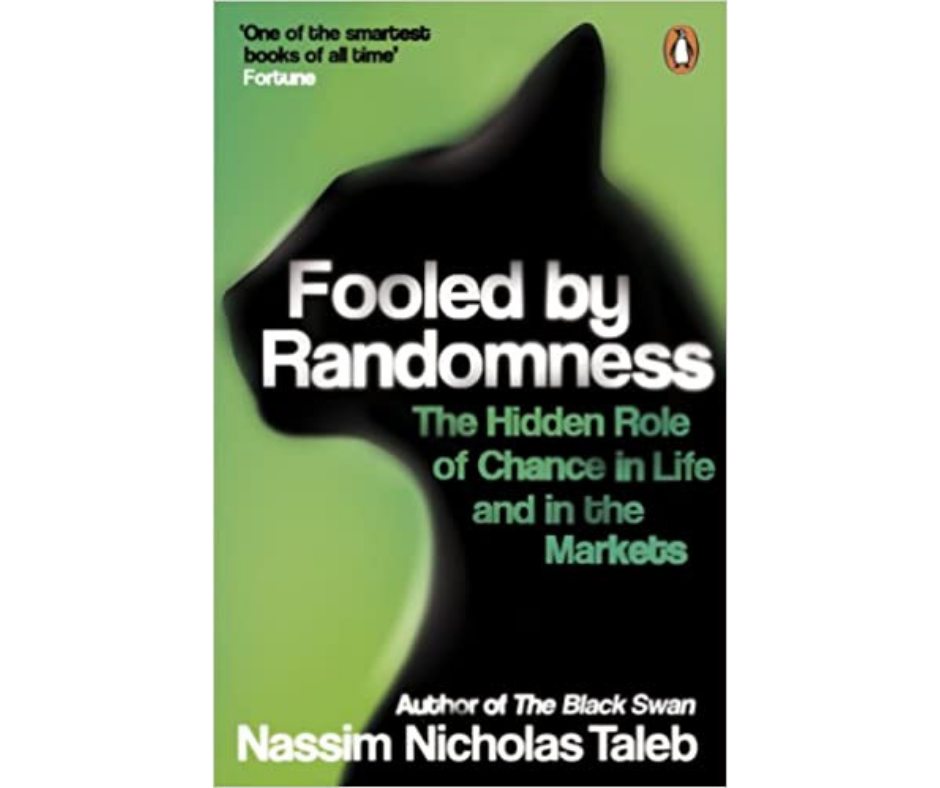Fooled by randomness
These are my notes for the book “Fooled by Randomness” by Nassim Taleb.
The thesis of the book is that when we look at the past we find things that are not there, the past is much more random than our vision. This is called the Hindsight bias. So we have to be aware that when people relate the past usually they tend to create post-hoc rationalizations and retrofitted explanations.
Overcoming this bias requires both courage and an awareness of our natural tendency toward self-deception.

To counter this bias, the book proposes skepticism as the antidote. And scepticism is not limited to mathematics, in involves our worldview. Taleb distinguishes between two types of ignorance: primary ignorance (when we don’t know that we’re ignorant) and secondary ignorance (when we’re aware of our ignorance).
The Empty Suit defaults to thinking that what he doesn’t see is not there, or what he does not understand does not exist. At the core, he tends to mistake the unknown for the nonexistent.Most of our decisions have not risk but uncertainty.
Two quotes that resonated in me were “that which came with the help of luck could be taken away by luck (and often rapidly and unexpectedly at that” and “it does not matter how frequently something succeeds if failure is too costly to bear”.
So the central thesis is: “luck has a central role in your life and you have to bear it in mind. While mild success can be explained by skills and persistence, wild success usually combines skill with a significant element of luck - what Taleb calls ’the survivorship bias of the lucky risk-taker. Taleb’s concept of alternative histories - the idea that success stories often ignore the many possible paths that could have led to failure.
Remember that nobody accepts randomness in his own success, only his failure.
Taleb criticizes journalism, particularly in radio and television, as being primarily entertainment that creates false narratives about causation. By focusing on sensational stories and retrofitted explanations, media outlets contribute to our misunderstanding of randomness and probability in daily events.
Taleb suggests a practical way to assess randomness: if you mentally replay a situation 1,000 times and imagine a wide range of possible outcomes, you’re dealing with a highly random scenario. This mental exercise helps identify situations where protecting against catastrophic outcomes should be prioritized.
The book is also full of popperian philosophy: you can’t say “this can’t happen”, only that “this have never happened”. Also, you can’t only falsify theories, never affirm it.
Fooled by Randomness also explores psychological traps like the social treadmill effect: as you get rich and move to a better neighborhood, you surround yourself with more successful people, leading to perpetual dissatisfaction - another example of how our perception of success and satisfaction is relative and often misleading.
Taleb’s recommendations:
- Being skeptical of stories that explain success
- Focusing on the magnitude of outcomes rather than their probability
- Building robustness against negative events rather than trying to predict them
- Using “barbell strategies” (combining very safe and very speculative positions while avoiding middle ground)